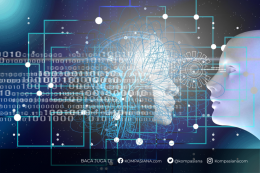Transition: While these roles remain safeguarded, the broader impact of AI necessitates strategies to address challenges and leverage opportunities.
Challenges and Strategies for Adaptation
While AI brings significant opportunities, it also poses challenges, including skill gaps, job displacement, and ethical dilemmas. To navigate this transformation, the following strategies are crucial:
1. Skill Development (Reskilling and Upskilling):
- Focus on mastering technological, analytical, and creative skills that are difficult to automate. According to PwC, workers trained in AI-related skills are 3x more likely to find employment in emerging sectors.
2. Technology-Based Education:
- Introduce curricula tailored to technological advancements to prepare younger generations. For example, coding and AI literacy programs are now mandatory in Finland's national curriculum.
3. Human-AI Collaboration:
- Develop expertise in leveraging AI tools to maximize productivity and innovation. Studies by Accenture show that companies integrating AI and human collaboration increase productivity by 40%.
4. Policy Adaptation:
- Establish regulations that promote a balanced and ethical integration of AI in the workforce. For instance, the EU's AI Act seeks to ensure safe and trustworthy AI systems.
Conclusion
AI is not just a tool for automation but a catalyst for reimagining the future of work. By understanding how AI influences different job categories and implementing strategies for adaptation, we can embrace the opportunities it offers while mitigating its challenges. AI indeed demands a thoughtful approach, but it also provides an exciting avenue for innovation and growth.
How do you see AI shaping your profession? Share your thoughts and join the conversation on the future of work in the AI era.
References







